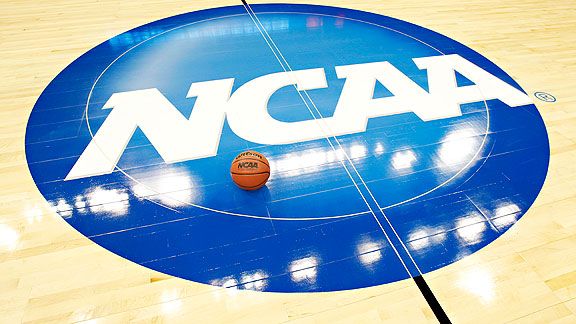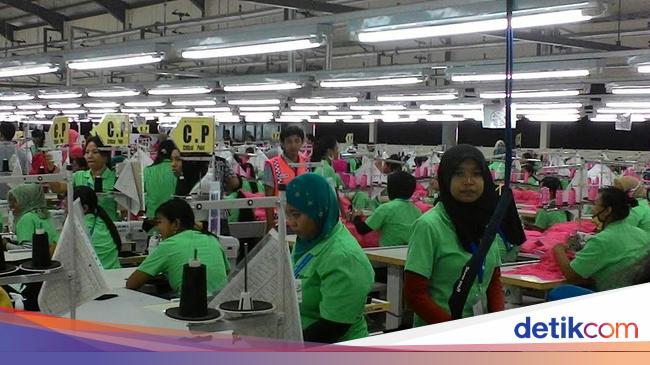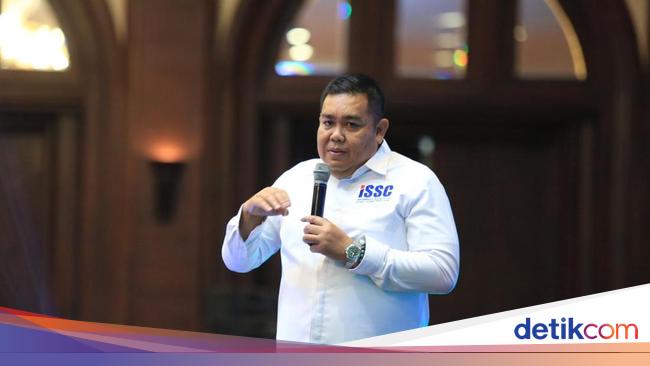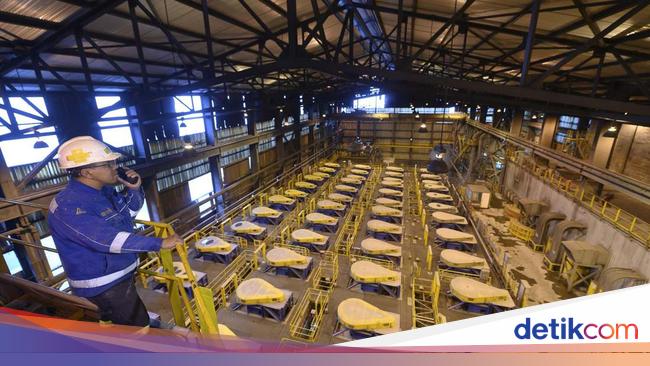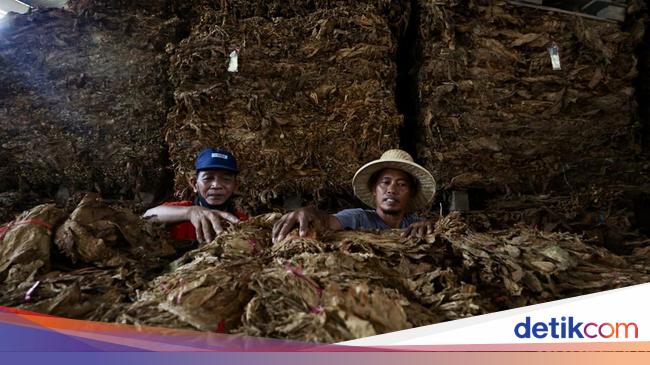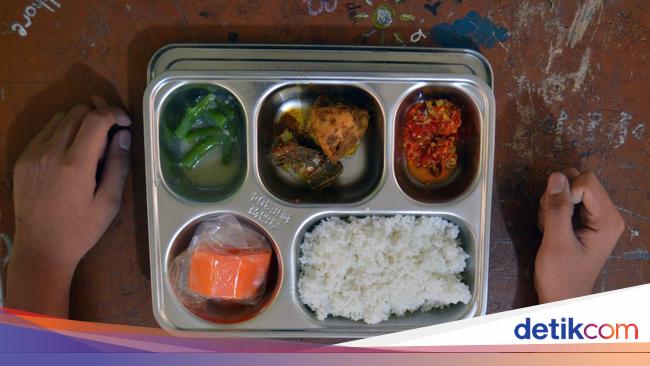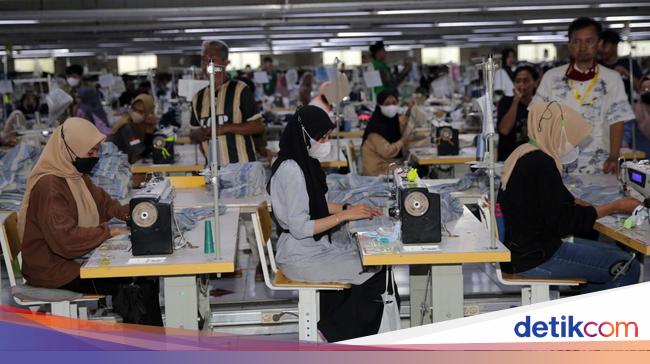
Dan MurphyOct 17, 2025, 08:00 AM ET
- Covers the Big Ten
- Joined ESPN.com in 2014
- Graduate of the University of Notre Dame
THE NIGHT MILLER MOSS learned he was no longer the starting quarterback for the USC Trojans, he went home.
Moss was raised less than 20 miles from campus in a beautiful modern house in Pacific Palisades. His street was lined by other beautiful modern houses and red-flowering gum trees on a hillside that hangs over the ocean. He came home often during his four years at USC.
For as long as he can remember, Moss has liked to walk out to the bluffs, a park near his house where he could look down on Pacific Coast Highway and over to the Santa Monica Pier and out on the waves rolling in from the horizon. It's peaceful. The view of the water expands in a way that invites its visitors to be wildly ambitious. Moss loves that view.
Late on the first Sunday night of last November, Moss stopped at In-N-Out to pick up a 3x3 burger and walked out to the bluffs to process the loss of his dream job. He was angry at the world, disappointed in himself. He replayed all the things he could have done differently, and all the small plot points that had they broken another way might have led to a different story.
He sat in the darkness for hours, looking out at the tiny lights of the pier in the distance. He came to the bluffs seeking the comfort of something familiar, a place to rediscover the conviction of his biggest dreams.
He hasn't been back since.
MOSS IS DRIVING SOUTH through an eight-lane section of the 405 Freeway when he brings up his reading habits. It's a weekday morning in late May. He's wearing black Adidas sweatpants and a matching gray T-shirt behind the wheel of his BMW X3, hemmed in by concrete barriers on one side and traffic on the other. His cleats are resting on the back seat as he motors to his first training session of the day, an hour's drive on a good day.
He says he has recently picked up "Meditations" by Marcus Aurelius. Moss had heard from a friend or a podcast -- he's not quite sure which -- that he should check out a book called "The Obstacle Is the Way" by Ryan Holiday, a staple of the modern self-help-adjacent genre aimed at men who want to harness the power of their adversity. When he learned that many of Holiday's ideas are rooted in the Stoic philosophy most famously captured by Marcus Aurelius, he decided to start with "Meditations."
It's kind of crazy, he says with one hand dangling over the steering wheel, how much he can relate to the passages that a Roman emperor wrote nearly 2,000 years ago.
"It's funny," Moss says. "I like reading now that I don't have to do it for school. I kind of hated reading in school."
His least favorite book to read in school was "The Catcher in the Rye."
"I couldn't stand that guy," Moss says of Holden Caulfield, the book's protagonist. "He was just so down on everything."
The BMW's rearview mirror frames a view of the hills, green trees and blue water interrupted by a sprawling black void where Moss's neighborhood once stood. He recently completed his spring semester at Louisville, and now he's back for a brief time to see his family and visit his favorite spots. I'm here beside him to understand what it's like to be a quarterback in college football's transfer portal era -- really, to remember how it feels to be 23 years old, chasing a dream, figuring out which parts of your past to carry with you and which to leave behind.
When wildfires ripped through Southern California in early January, Moss had already packed his luggage, having resolved to put his USC benching behind him and reset at a new school in a new city for his final college season. His flight was scheduled to take off a week later. He hated to leave his mother and little sister behind in California, but he boarded the plane as planned.
Moss first returned to Los Angeles during spring break in March and planned to drive through the old neighborhood. Then he saw the black patch of ash from a distance while driving on the highway. The ocean was a strange color. The beach was empty. His mother told him it was jarring to see piles of rubble and the burned-out husks of their washer and dryer strewn in what used to be the front yard. He decided he wasn't ready.
"It was very unsettling honestly," he told me then, punctuated with a laugh. He would use the same laugh several times during our months of conversations, a cushion for hard truths. "I had such fond memories of that house. I don't know. I wanted to maintain the idea. I wanted to keep those memories intact."
As we continue driving south, Moss assures me that he's ready to visit the site later today for the first time since it burned.
Miller's parents, Emily and Eric, are both architects. Shortly before Miller was born in 2002, they bought a 1950s-era bungalow in the Palisades. When his sister, Addi, arrived four years later, they tore down the bungalow and built a modern, two-story home. They put in a pool and hung a swing on one of the trees in the front yard. Emily and Eric divorced in 2015, and Emily pushed hard to keep the house as an anchor for Miller and Addi. She wanted them to have a steady place from where they could explore the rest of the world.
Miller says he has always had an impulse to please, and a belief he could be excellent in whatever he did. When he was a toddler, his grandmother set him up with a chess tutor at the library where she worked -- a Vietnam veteran named Mel. Before long, Mel was taking Miller to a park near Venice Beach to compete with the old men who played in the shade. He was in grade school when he started to win, and Mel rewarded him with cuff links that had images of small chess pieces stamped on them.
Around that time, his parents hired an art teacher, Dee, to come to their home and teach the kids about famous painters. She showed them how to look closely at color and light, how to see the subtleties in them that capture the feel of a place. Miller filled sketchbooks to impress Dee.
He saw his first USC football game when he was 7 years old. It was less a dream of his to play quarterback for the Trojans as it was a foregone conclusion in his young mind. He visited the Rose Bowl as a kid and had no doubts that one day he would run onto that field and lead USC to a win over UCLA in their annual rivalry game.
His dad fueled Miller's ambition. He enrolled him in a flag football league in a tougher part of the city to see how he fared. He hired one quarterback tutor, then another. Starting when Miller was in the 8th grade, Eric would drive him an hour south to a junior college field in Huntington Beach so he could train alongside elite Southern California quarterbacks -- high school, college and pro -- with plans to follow in their footsteps.
Eric remembers one of Miller's first games as a freshman quarterback in high school, when he was chased around the field relentlessly by a much larger, older player. Every time the big lineman got close he'd yell: "Winter is coming!" After the game, Miller told his dad the story and laughed. Eric loved what that laugh said about his son.
"Winter is no deterrent to him," Eric says. "Emily and I, in talking about what kind of kid a kid could be. ... There was an idea that difficulty is to be faced and worked on; it's not intimidating."
Whenever Miller is back in Los Angeles, he starts his mornings with the same drive to the same junior college field in Huntington Beach. Back in the car now, he glances at the dashboard clock and then at the line of cars stacking in front of us. The field is only 10 minutes from where the traffic always dissipates once we get past the exit for the 605 Freeway, he says, assuring himself we're still on schedule despite a couple of unexpected delays.
"Yeah, we're good," he says.
NINE MINUTES AFTER the exit, Moss puts his car in park, grabs his cleats from the back seat and jogs across the turf field where a group of eight other Division I quarterbacks are loosening their arms at the 3DQB training camp.
He's first in line as they begin to work through a series of simulated pass routes. Taylor Kelly, one of the 3DQB coaches, stands 15 yards away wearing a pair of receiver gloves, playfully chiding his guys to hit their spots or find a little more "velo." One of Moss's balls slips through Kelly's hands.
"Miller, you're throwing too hard," Kelly says.
"Yeah, if only that were true," Moss shoots back.
Moss is working to keep a wider stance in his drop to get the ball out faster. He doesn't have the same physical gifts as many of the players who have trained with Kelly and 3DQB co-founder Adam Dedeaux, and he isn't expected to be among the top 10 quarterbacks drafted in the NFL next spring. But compared to the others there, he is more at ease, looser.
"He's a professional," Dedeaux says, standing behind the group with his arms crossed near midfield. "He's been that way for a really long time."
There's no position judged more on circumstance than quarterback, Dedeaux says, and the transfer portal has helped a lot of college quarterbacks find better circumstances. Of the first 10 quarterbacks drafted this year, nine of them switched schools. That includes Cam Ward, who became the top pick by the Tennessee Titans after transferring from Washington State to Miami.
"He didn't all the sudden get way better," Dedeaux says. "He just got to the right spot."
Moss never thought he'd take that path. For two seasons, he played behind Heisman winner Caleb Williams, passing on opportunities to transfer, patiently waiting for his shot. When Williams opted out of USC's bowl game in 2023, Moss stepped in and threw six touchdowns to end a 8-5 season on a high note. His teammates publicly stumped for him to get the starting job, support that felt like vindication for his belief that good things are found on the other side of difficult challenges.
Moss shined again in a win over LSU to start the 2024 season, but then the Trojans sputtered, losing five of their next eight games by a combined 19 points. Moss threw crucial interceptions in close losses to Michigan and Penn State. He also led fourth-quarter drives to give USC the lead in both games, only to watch from the sideline as those leads slipped away.
"Yes, there were throws he wanted back, no doubt," Dedeaux says. "But there was also this sense that he had to be perfect to win in every game. If there was a little more patience ..."
Moss threw three more interceptions in a 26-21 loss to Washington on Nov. 2. The next day he learned he had lost his job. He says he doesn't like to discuss how he was told because he doesn't "want to make other people look bad." Three weeks later, he stood on the sidelines at the Rose Bowl and watched someone else lead the USC offense onto the field against UCLA. A coach told him to stay ready in case he was needed and he nodded. Inside his helmet, he clenched his jaw and fumed.
When I ask Eric Moss how his son handled the last month of his career at USC, he pauses to find the right word before landing on "grace." He says outwardly, at least, Miller didn't flinch.
"They commended him because Miller stayed and stuck with it," Eric says, a sharpness building in his voice. "They all celebrated that, until they didn't. To face that, and as far as I know he did it alone, I think it changed him."
Moss made a point in those last weeks at USC to be the final player to leave practice each day. He'd go to the far side of the field to throw with a scout team tight end. Or he'd simply run laps. He'd stay until everyone else disappeared.
"That was a test for me," he says. "Who are you really when s--- hits the fan?"
On the field in Huntington Beach now, Moss is again the last player to leave. He jogs to Dedeaux near the 50-yard line and they talk through some of the finer points of his new wider stance. Moss tells him he has a folder full of Drew Brees clips he plans to study, and the two geek out over plays they've committed to memory.
"That Stafford throw against Detroit," Moss says. "You know the one I'm talking about?"
"Oh, yeah," Dedeaux says, nodding.
"I don't even know," Moss says. "I mean, how do you even do that?"
On the drive back to the Palisades, Moss tells me Matthew Stafford, Brees and Joe Burrow are his favorite quarterbacks to study. It's wild, he says, how underappreciated Brees is for the numbers he posted. At some point in their careers, I point out, all three thrived in a second chapter after being held back by circumstances at least somewhat outside their control.
"True," Moss says. "So much of success at quarterback is situational."
"Do you think that's what happened with you at USC? How do you think about that?"
He pauses and looks out the windshield. He laughs a little to himself.
"If I'm being totally honest," he says, "I haven't 100% dealt with it."
"HOW ABOUT COUNTRY MART, Mill? We could order ahead?"
"Ohh, yes! Country Mart. Let's get tacos."
We're standing in the kitchen of the house where Miller's mother, Emily, is temporarily living along with his grandmother, who also lost her house in the fire. Miller's girlfriend, Sia, has joined us. There are no paintings or family pictures hanging on the walls. The dining room is occupied by a drafting table where Emily has laid out the blueprints to the new house she wants to build on their Palisades lot. A four-inch-thick binder filled with plays from Louisville's pro-style offense sits beside the drawings. Miller asks his mom what he needs to wear and what to expect at the site of the old house, where we'll go after we eat lunch at one of his favorite spots.
As Miller drives us down to the Brentwood Country Mart, Emily punches in orders on her phone. No one but me needs to look at the menu. The Country Mart opened in 1948, designed to resemble a barn with red walls and white trim. It was a community hub where an early generation of Hollywood stars could casually mingle with locals at white picnic tables in the brick-paved courtyard between its shops.
"Oh, I loved coming here as a girl," Miller's grandmother says from the backseat. "I remember Gregory Peck used to smile at us and wave. He was very nice."
Miller laughs. "Wow, grandma! Gregory Peck!"
In 2003, when J.S. Rosenfield bought the Country Mart, nearly half of its stalls and shops were unoccupied. The post office and barbershop and candy store had all moved out. Rosenfield told the local newspapers he wanted to rebuild the place he remembered from his childhood. He put a fresh coat of barn-red paint on the walls and convinced the post office and the barber and the candy store to move back. Moss was a newborn that year.
Emily brings our food over to a picnic table. She says that the Reddi-Chick BBQ in the corner was her favorite spot when she and her brother came here as teenagers. Miller points out the ice cream store they used to visit after his youth football and basketball games.
"How are you feeling about seeing the old site?" Emily asks.
"I'm a little apprehensive, I guess," he says. "I really don't know what to expect."
Miller sets down his taco on the tray in front of him. He was the last person in the house before it burned.
It was unusually windy that morning, he says, when he went for a jog through the neighborhood. He returned home to a phone full of texts from friends, and videos of smoke billowing through the state park several miles north. Around lunch time, he convinced his mother they should evacuate, but both assumed at worst they were leaving to avoid a few days of poor air quality. He put a couple of the bags that were already packed for Louisville into the car, and they left everything else behind.
They went to a friend's house first. Then Miller found them a hotel a bit farther away as the wind continued blowing flames toward them. After they settled in the hotel that night, Miller made a run to the house. He talked his way past the police who were turning people away from the Palisades. The air felt heavy in his throat as he sprinted from the driveway into the house. He filled a laundry bin with items he thought his mother would want to save.
"I would've grabbed more had I known," Miller says.
At the time, it still seemed impossible that firefighters wouldn't keep the flames from reaching across the canyons and into their neighborhood. He wishes he would have grabbed a couple of old trophies or drawings, definitely the Rubbermaid container filled with recruiting letters.
The letters from some of the country's most famous coaches were important to Miller, validation for his hard work. He smiles at the memory of chatting with the mailman, who would read the return addresses -- "Miami and Penn State today!" -- and ask Miller where he'd be going. It was never much of a decision, but Miller says he always imagined he'd pull out that bin and flip through the letters with his own kids some day.
"Aww, babe," Sia says, and puts a hand on his back. Miller smiles and shrugs.
We empty our trays. Sia helps Grandma pack her leftovers, and Miller walks behind them on our way back to the car. When he's homesick in Louisville, Miller tells me a couple months later, this is what he misses.
MOSS DRIVES SLOWLY, drifting from one side of Sunset Boulevard to the other, past a set of white arches that once served as storefronts and now look like Roman ruins. There are buildings -- in some places entire city blocks -- that remain untouched. Just across the street, all that remains are dirt patches marked by chunks of concrete foundations. Some of the owners of the intact buildings had hired private firefighters. Others just got lucky.
"I feel like we're driving through a war movie," Miller says.
"I can't even recognize it," Sia says from the back seat.
"It's unrecognizable," he says.
Miller exhales as the car crawls to a stop at the curb of a wedge-shaped lot with a flowerless gum tree out front. The concrete frame of a swimming pool juts out of the ground at the back of the property. A basketball hoop stands in the front corner. A nylon net dangles from the rim.
"It looks a lot smaller," Miller says. Sia rubs her arms. She starts scanning the ground, hoping she can find something, anything, in the dirt.
Emily tried the same thing when she first visited the site months earlier. She searched for hours in the rubble, clinging to a fantasy as sweat and black dirt collected on her face mask and coveralls. She hoped she would discover a Rubbermaid bin full of letters. Or a file cabinet of sketchbooks. Every nail that caught a glint of the sun looked for just a second as if it could be a pair of cuff links.
"I feel very guilty," Emily says now. "I feel like I'm the parent here and this happened under my watch. Like I should have stored their precious things better." She stifles her tears with a bit of a laugh.
Miller stands on the concrete corner of the swimming pool several yards away.
"Wait, I'm confused," he says. "The pool used to be straight. It used to feel straight?"
The length of the pool ran parallel to the house, rather than the property line. Without the house to frame the pool, the angles are off.
"You know what I mean?" Miller says. "It feels like a completely different place."
"Yeah," Emily says. "It's almost like seeing an open casket. I know that's grim, but you know how you look at it and you just feel like that person isn't there anymore? That's what this feels like."
Emily and Miller move to the barren front yard and marvel at the impossibly intact basketball hoop. The day it was installed, they remember, Miller didn't bother to put on shoes before running onto the hot driveway to shoot for hours.
Basketball was his first love. For his 7th birthday party, Miller says, his parents paid James Harden to stop by their house and play with him and his friends. Harden was three months from being selected third in the 2009 NBA draft, and Miller took him on one-on-one. He laughs now as he remembers how certain he was that he had actually held his own for a few buckets.
More stories come to them. Stories about the toy construction equipment Miller played on in the front yard. A family trip to Italy. The legendary party Miller threw as an underclassmen when Emily was out of town.
The photos of Italy are gone. The shoes that Harden signed for Miller have burned. The driveway that once sat below the hoop was hauled away in a dump truck weeks earlier. But Miller still remembers the day the hoop arrived, how the burn bubbles on his feet stung in the shower. And how he ran outside the next morning to shoot again.
He looks around from the sidewalk before we go. He notices there are no birds and no bugs. The only sounds are dump trucks beeping as they load the remains of lots down the street. Without rows of houses to block the ocean view in one direction or hills in the other, the sight lines have changed.
"Even the light is different," he says.
MILLER MOSS IS in a rhythm. He's perched on a leather stool at the marble kitchen island of his apartment nearly 20 floors above downtown Louisville. Floor-to-ceiling glass windows look down on the interstate highway and over to the Twin Spires of Churchill Downs and out toward the thick bend of the Ohio River that separates Kentucky from Indiana.
It's a sunny afternoon in mid-July, and Moss is cranking his way through sheet after sheet of autographs. Each of the 36 pages stacked in front of him has six rows and eight columns of transparent stickers that will be placed onto cards with a photo of Moss in his Louisville Cardinals uniform. Nearly 1,800 signatures in all. The repetition has become almost meditative, giving Moss a chance to detach his brain from his body.
The two-bedroom apartment, the first place Moss has ever lived without family or roommates, gives him room to think. Aside from the framed movie posters he has hung on the walls and the Kobe Bryant photo above his bed, it's largely a blank canvas. Emily helped him rent a couple of couches, a pair of end tables and an ornamental chess set that sits untouched on one of them. A large, wooden drawerless desk is angled into a corner, facing outward. A sketchbook lies in front of the computer monitor.
Miller says he can get from his apartment to Louisville's practice facility in six minutes on a good day -- a straight shot down I-65. Moss has spent much of his summer watching film with head coach Jeff Brohm. They dissect his games from last season at USC, Louisville's old games, NFL games, cut-ups of other quarterbacks they like. At night, Moss turns on the television for background noise and watches film on his iPad.
"What is your favorite place to eat in Louisville?" I ask.
Moss laughs sheepishly. He says it's probably the training table at the practice facility. That's not a knock on the local cuisine, but he has been busy and trying to cook for himself to be more healthy, and, after all, Gregory Peck never smiled at his grandmother in any lunch spots in Louisville.
"It's obviously a somewhat temporary situation, but I love it here now so that part isn't awesome," Moss says. "I wish I had more time here."
Moss would win his first four games as Louisville's quarterback, putting his team on the brink of the top 25. We connected again the morning after his first loss, in overtime to Virginia on Oct. 4. It was another up-and-down performance -- 329 yards passing and a fourth-quarter comeback drive, marred by a poor decision that led to a pick-six.
He tells me he spent the night after the loss in his apartment, watching his next opponent, No. 2 Miami, beat Florida State in prime time. There's always the next opponent. There's always the next obstacle.
I ask him about the night he spent in the darkness at the Palisades bluffs. It was nearly a year ago. What has he learned since then?
"I don't know if I ever had fundamental doubts about the idea that hard work will pay off eventually," he says. "The tougher realization in that moment was that it might not pay off in the exact way you envisioned."
He knows more about himself now. His dream to play professional football remains alive. He says he believes now more than ever that the hardest things life throws in his path will fuel his most wild ambitions.
"Have you found a place in Louisville to replace the bluffs?" I ask.
"I mean, you're not going to find a replacement for 20-some years, you know?" he says. "But my apartment does really feel safe, like a home to me."
"Are you looking out at the city and the lights when you feel that?"
He laughs a little.
"I think it's more of an inward thing," he says.

 5 hours ago
2
5 hours ago
2


















